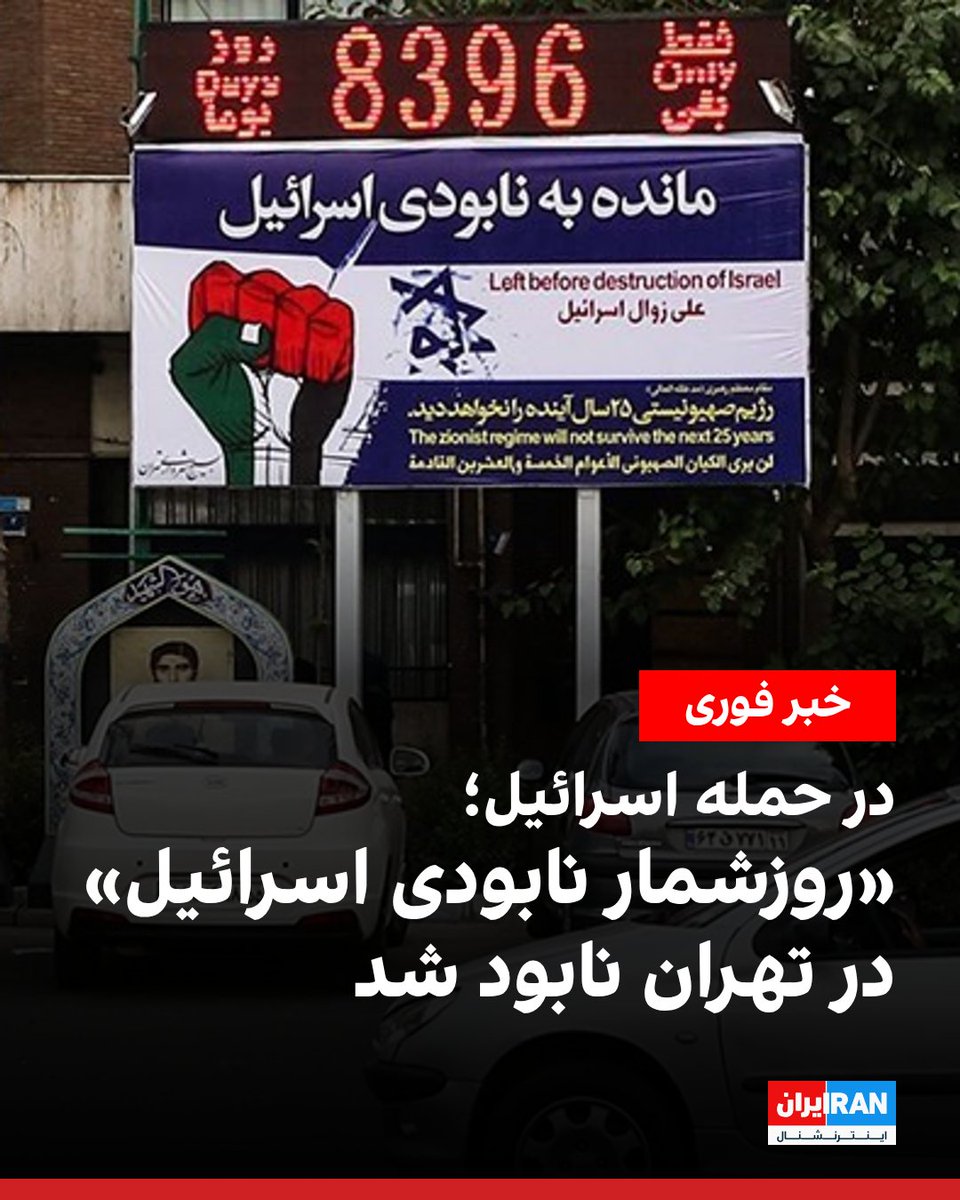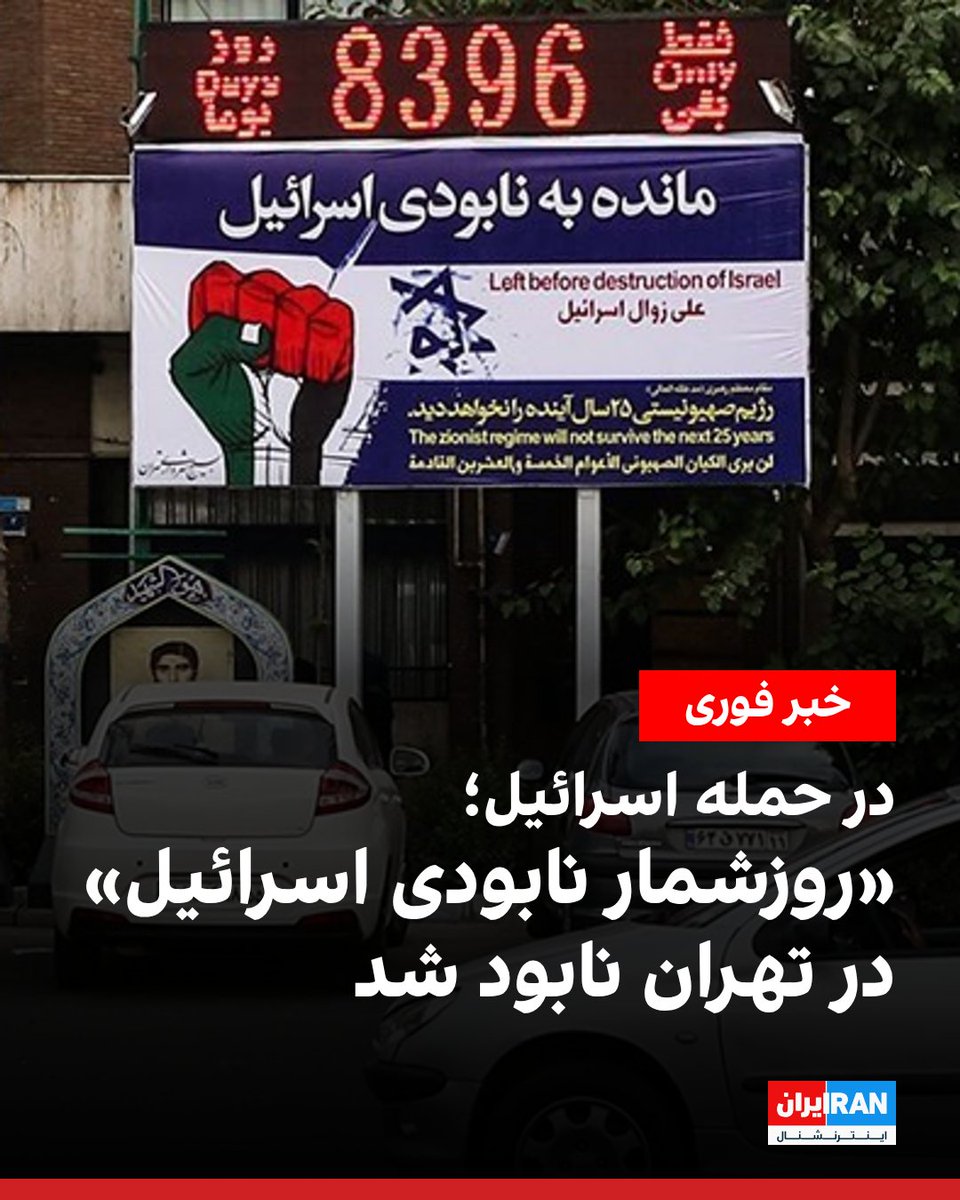Breaking: Israel Targets Tehran’s IRGC, Escalating Tensions!
Ongoing Airstrikes in Tehran: A Summary of Recent Developments
In a significant escalation of military conflict, airstrikes have been reported in Tehran, Iran, as confirmed by Israel’s Defense Minister. The strikes, which are directed at various locations associated with the Iranian Revolutionary Guard Corps (IRGC), signal a continued confrontation between Israel and Iran amidst rising tensions in the Middle East. This article summarizes the key points surrounding these developments, their implications, and the broader geopolitical context.
Background of the Conflict
The relationship between Iran and Israel has been fraught with tension for decades, primarily due to Iran’s support for militant groups that oppose Israel and its nuclear ambitions. The IRGC, a branch of Iran’s Armed Forces, plays a crucial role in Tehran’s defense strategy and its foreign military operations. Israel views the IRGC as a significant threat, particularly regarding its activities in neighboring countries and its support for groups like Hezbollah in Lebanon.
Details of the Airstrikes
On June 23, 2025, reports emerged of ongoing airstrikes in Tehran targeting several key locations associated with the IRGC. The Israeli Defense Minister announced that the Israel Defense Forces (IDF) were striking the following sites:
- Basij Headquarters: The Basij is a paramilitary force under the IRGC, known for its role in suppressing dissent within Iran. Targeting this location indicates a direct assault on the regime’s internal security apparatus.
- Evin Prison: This facility is notorious for housing political prisoners and dissidents. Attacking this site highlights the international community’s scrutiny over human rights abuses in Iran.
- Destruction of Israel Clock: This symbolic target reflects the ideological battle between Iran and Israel, as the clock represents the countdown to Israel’s demise, a narrative often promoted by Iranian leadership.
- Ideology Headquarters: This location is likely linked to the IRGC’s strategic planning and propaganda efforts aimed at promoting anti-Israel sentiments.
- Other IRGC Installations: The strikes also targeted various other installations believed to be involved in the repression of dissent and the militarization of the Iranian regime.
Implications of the Strikes
The airstrikes carry significant implications for regional stability and international relations. Here are some critical aspects to consider:
- YOU MAY ALSO LIKE TO WATCH THIS TRENDING STORY ON YOUTUBE. Waverly Hills Hospital's Horror Story: The Most Haunted Room 502
1. Escalation of Military Conflict
The targeted nature of these strikes suggests a deliberate strategy by Israel to weaken the IRGC’s operational capabilities. This could lead to a broader military confrontation, as Iran may retaliate against Israeli interests in the region or employ proxy forces to respond.
2. Humanitarian Concerns
As airstrikes are conducted in populated areas, there are immediate humanitarian concerns regarding civilian casualties and damage to infrastructure. The international community may respond with calls for restraint and discussions on the legality of such military actions under international law.
3. Geopolitical Reactions
Countries in the region, particularly those with vested interests in Iran or Israel, may react strongly to these developments. Allies of Iran, such as Russia and China, could increase their support for Tehran, while countries aligned with Israel may express solidarity. This incident could also influence U.S. foreign policy in the region, especially in light of ongoing diplomatic efforts regarding Iran’s nuclear program.
4. Domestic Response in Iran
The strikes are likely to provoke a strong nationalist response within Iran, potentially uniting various factions against a common external threat. This could bolster the Iranian regime’s narrative of resistance against foreign intervention, even as public discontent over economic issues and government repression persists.
Broader Context of Iran-Israel Relations
The airstrikes are part of a long-standing pattern of hostility between Iran and Israel, characterized by proxy wars, cyberattacks, and direct military engagements. Israel has consistently sought to undermine Iran’s influence in the region, particularly its military entrenchment in Syria and its support for militant groups. The ongoing conflict is further complicated by the involvement of global powers, each with their strategic interests in the Middle East.
Conclusion
The ongoing airstrikes in Tehran mark a significant escalation in the Israel-Iran conflict, showcasing the fragile state of regional stability. As both nations navigate the complexities of military engagement, geopolitical alliances, and domestic pressures, the situation remains fluid and highly volatile. The international community will be closely monitoring these developments, as they hold the potential for wider implications not just for Iran and Israel, but for the entire Middle East.
In summary, the recent airstrikes underscore the ongoing tensions and the potential for conflict escalation in the region. Stakeholders must carefully assess the implications of these actions and work towards diplomatic solutions to prevent further violence and instability.

#BREAKING: Ongoing airstrikes in Tehran, #Iran. #Israel‘s defense minister announces that the IDF is striking #IRGCterrorists Basij headquarters, Evin Prison, the Destruction of Israel clock, ideology headquarters, and other IRGC installations of repression.… pic.twitter.com/KBBiWAN37B
— Jason Brodsky (@JasonMBrodsky) June 23, 2025
BREAKING: Ongoing Airstrikes in Tehran
In a dramatic escalation of military tensions, airstrikes have commenced in Tehran, igniting a wave of concern and speculation about the implications for the region. The news broke through social media platforms, capturing attention globally as citizens and analysts alike scramble for information on the unfolding situation. The ongoing airstrikes signify a pivotal moment in Middle Eastern geopolitics, particularly involving Iran and Israel.
Tehran, the capital of Iran, has become the epicenter of a significant military operation. The Israeli Defense Forces (IDF) have targeted several key locations, aiming at what they describe as installations related to repression and terror. As reported by Jason Brodsky, Israel’s defense minister has confirmed strikes on sites such as the **Basij headquarters**, **Evin Prison**, and the **Destruction of Israel clock**, among others. These locations are associated with the Islamic Revolutionary Guard Corps (IRGC), which Israel designates as a terrorist organization.
Understanding the Context of the Airstrikes
To grasp the full scope of these airstrikes, it’s essential to understand the historical context and ongoing tensions between Iran and Israel. For decades, these two nations have been embroiled in a complex rivalry, characterized by proxy wars, ideological conflicts, and military posturing. The IRGC plays a vital role in Iran’s military and political landscape, often acting as a shadowy force involved in various operations across the region.
The recent airstrikes are not an isolated incident; they are part of a broader strategy by Israel to undermine Iran’s influence and capabilities. Israel has long maintained that it will not allow Iran to acquire nuclear weapons, and the strikes on IRGC installations are seen as preemptive measures to thwart Iran’s military ambitions.
The Implications of Targeting the Basij Headquarters
One of the most significant targets in the recent airstrikes is the **Basij headquarters**. The Basij is a paramilitary volunteer militia established in Iran, and it operates under the IRGC. It plays a crucial role in maintaining internal security for the Iranian regime. By striking this location, Israel aims to weaken Iran’s ability to project power both domestically and abroad.
The Basij has been involved in numerous crackdowns on dissent within Iran, making it a symbol of the regime’s oppressive tactics. By targeting such a facility, Israel sends a clear message that it is willing to take decisive action against what it perceives as threats to its national security.
Evin Prison: A Symbol of Repression
Another critical site targeted in the airstrikes is **Evin Prison**, known for housing political prisoners and dissidents. This prison has a notorious reputation for human rights abuses, including torture and inhumane treatment of inmates. Striking Evin Prison carries a potent symbolic weight, as it represents the Iranian regime’s efforts to silence dissent and maintain control over the populace.
For many Iranians, the attack on Evin Prison might evoke mixed feelings. While some may view it as a necessary measure to weaken the regime’s grip, others could see it as an infringement on Iranian sovereignty. The complex emotions surrounding this issue highlight the intricate web of politics, nationalism, and human rights that define the Iranian landscape.
The Destruction of Israel Clock and Ideology Headquarters
Perhaps one of the more provocative targets is the **Destruction of Israel clock**, an infamous symbol of Iranian rhetoric that openly calls for the end of the Israeli state. By striking this installation, Israel is making a bold statement against the existential threats it faces. It’s a clear indication that Israel will not tolerate threats to its existence and will act decisively to neutralize them.
The mention of an **ideology headquarters** in the strikes also underscores the ideological battle that underpins the conflict. This site likely serves as a center for propagating anti-Israel sentiments and consolidating support for the regime’s policies. Israel’s military action against such a facility reflects its broader strategy to dismantle the narratives that fuel hostility towards it.
Reactions from the International Community
The ongoing airstrikes have prompted varied reactions from the international community. Some nations have expressed concern over the escalation of military actions in the region, fearing that such conflicts could lead to a broader war. Others have condemned Israel’s actions as aggressive and provocative, calling for restraint from all parties involved.
Iran, for its part, has vowed to retaliate against these strikes, emphasizing its resolve to defend its sovereignty. As the situation evolves, the potential for a wider conflict looms larger, compelling nations around the world to pay close attention to the developments in Tehran.
What’s Next for Iran and Israel?
As the airstrikes continue, the immediate future for both Iran and Israel remains uncertain. There is a palpable tension in the air as military operations escalate. Analysts are speculating about the potential for retaliation from Iran, which could take many forms, including cyberattacks or proxy engagements in neighboring countries.
Israel’s strategic calculations will also be critical in the coming days. The IDF’s ability to execute successful strikes while minimizing civilian casualties will be under scrutiny, especially given the international focus on human rights. Balancing military objectives with the need to maintain global support will be a challenging task for Israel’s leadership.
The Broader Impact on Middle Eastern Geopolitics
The ramifications of the airstrikes extend beyond the immediate conflict between Iran and Israel. This situation could also impact relationships with other regional players, including the Gulf States, Russia, and the United States. As nations assess their alliances and interests, the geopolitical landscape of the Middle East may shift dramatically.
For example, Saudi Arabia and other Gulf nations have been closely monitoring Iran’s actions, as they share concerns about Iranian expansionism. This latest escalation might affect their diplomatic strategies, potentially leading to new alliances or a reevaluation of existing ones.
Conclusion: The Unfolding Narrative
The ongoing airstrikes in Tehran mark a significant chapter in the evolving narrative of Middle Eastern politics. With tensions rising and the potential for conflict increasing, the world watches closely as each side navigates this precarious situation. The actions taken in the coming days will not only shape the immediate conflict but could also redefine the geopolitical landscape for years to come.
In a world where information spreads rapidly, staying informed and engaged with these developments is crucial. The situation is fluid, and as new details emerge, the global community will continue to analyze the implications of these airstrikes on peace and stability in the region.

